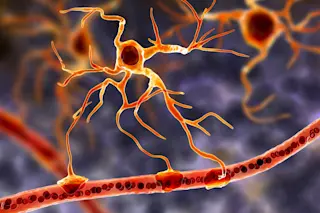After his grandfather suffered a spinal cord injury in a car accident, Chris Dulla wondered how his wounded brain cells would repair themselves. So when Dulla learned in medical school two decades ago that star-shaped brain cells called astrocytes support neurons and play a vital role in injury response and recovery, he felt the urge to dive deeper into the topic.
Dulla, who is currently an associate professor of neuroscience at Tufts University, has now discovered a fundamental characteristic of these cells that may transform our understanding of the brain. The recent research suggests that astrocytes don’t just serve as support structures as scientists previously thought. Instead, they are electrically active and in constant communication with neurons, as Dulla and colleagues reported in a Nature Neuroscience study. This finding could lead to innovative treatments for conditions like schizophrenia and Alzheimer’s disease.
Astrocytes are an abundant group of brain cells that ...














